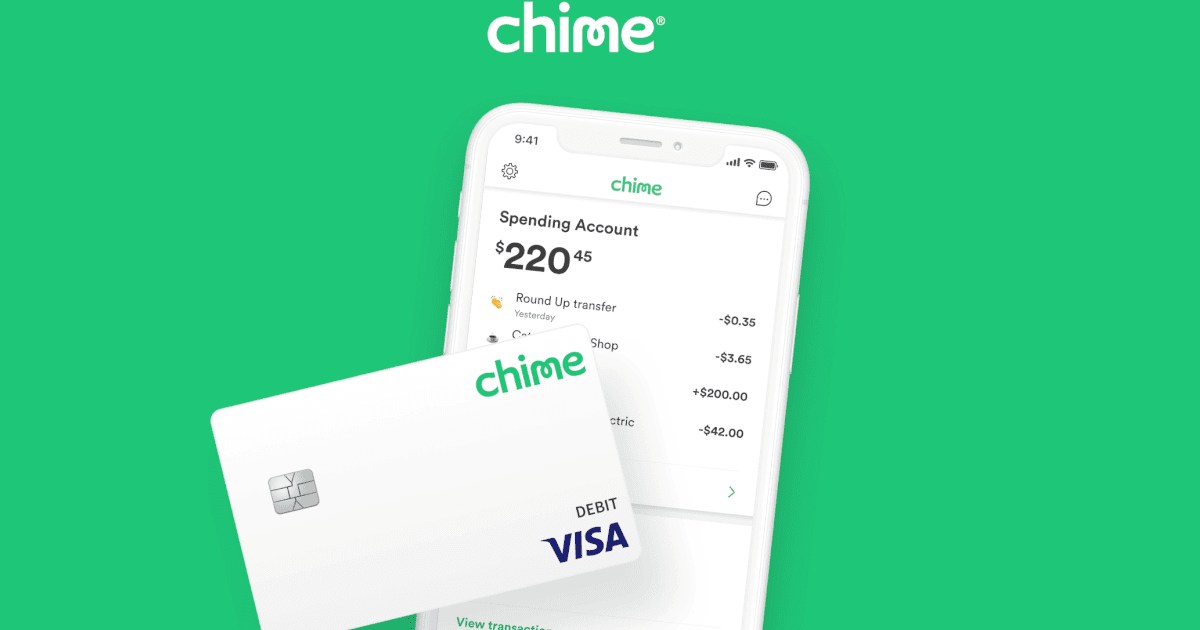How Does Chime Make Money
Chime is a leading financial technology company that offers online banking services and operates as a neobank. Chime’s user-friendly mobile app and website provide a modern and convenient banking experience. It offers a fee-free spending account, a high-yield savings account, and a Chime Visa debit card for seamless transactions.

Chime stands out for its innovative features like early direct deposit, overdraft protection, and automatic savings options. By leveraging technology, Chime aims to simplify banking and empower users to better manage their finances. All information on how does chime make money is given below.
How Does Chime Make Money? [ Everything You Need to Know].
Chime is a US-based financial technology company that primarily operates as a neobank, providing online banking services and features to its customers. Chime generates revenue through various channels, including:
Interchange Fees:
Chime earns a significant portion of its revenue through interchange fees. As an interchange charge, Chime gets a portion of each transaction’s value from merchants when users use their Chime debit cards to make purchases.
Deposit Revenue:
Chime generates revenue by earning interest on the funds deposited by its customers. Chime holds customer deposits in partner banks and earns interest on those deposits.
Overdraft Fees:
Chime offers an optional overdraft feature called SpotMe, which allows customers to overdraw their accounts up to a certain limit without incurring any fees. However, if customers exceed their limit, they may be charged overdraft fees, which contribute to Chime’s revenue.
Card Network Fees:
Chime partners with card networks such as Visa, Mastercard, and Discover. These partnerships involve certain fees that Chime receives for card issuance and transaction processing.
Subscription Fees:
Chime offers a premium membership called Chime Credit Builder, which helps customers build their credit scores. The membership comes with additional benefits such as early access to paychecks, higher transaction limits, and more. Chime charges a monthly fee for this premium service, which contributes to its revenue.
Referral Partnerships:
Chime has referral partnerships with various companies and services. When Chime refers its customers to these partners and they generate revenue, Chime may receive referral fees or commissions.
It’s important to note that the specific revenue streams and their relative contributions to Chime’s overall revenue may vary over time as the company evolves its business model and introduces new services.
How Chime Works?
Chime operates as a digital bank or neobank, providing online banking services to its customers. Here’s how Chime works:
Account Setup:
To get started, individuals can sign up for a Chime account through the Chime mobile app or website. As an interchange charge, Chime gets a portion of each transaction’s value from merchants when users use their Chime debit cards to make purchases.
Chime Spending Account:
Once the account is created, users are provided with a Chime Spending Account. This account acts as a checking account, where customers can deposit funds, manage transactions, and make purchases using a Chime Visa debit card.
Direct Deposit:
Chime offers direct deposit functionality, allowing users to have their paychecks, government benefits, or other recurring income deposited directly into their Chime account. This feature enables faster access to funds compared to traditional banking methods.
Mobile Banking Features:
Chime’s mobile app serves as the primary interface for customers to manage their accounts. It offers various banking features, including:
Balance and Transaction Tracking:
Users can view their account balance, track transactions in real time, and receive transaction notifications.
Mobile Check Deposit:
Customers can deposit checks by capturing photos of the front and back of the check using their mobile devices.
Bill Payment:
Chime allows users to pay bills directly from their accounts using the app. Users can set up one-time or recurring payments to authorized payees.
Peer-to-Peer Payments:
Chime facilitates person-to-person payments between Chime users through its “Pay Friends” feature. Users can send money to friends, and family members who have Chime accounts.
ATM Access:
Chime provides access to a network of ATMs where users can withdraw cash. Chime has partnerships with ATM networks like MoneyPass and Visa Plus Alliance, allowing fee-free withdrawals at designated ATMs.
Savings Account:
Chime offers an optional feature called the Chime Savings Account, where users can set aside funds for savings. The Savings Account provides an opportunity to earn interest on the deposited amount.
Chime Card:
Chime provides customers with a Chime Visa debit card that can be used for purchases, online transactions, and ATM withdrawals. The Chime card is linked to the customer’s Spending Account and can be managed through the mobile app.
Notifications and Alerts:
Chime offers real-time notifications and alerts to inform users about their account activity. These notifications can include transaction updates, low balance alerts, and security alerts for potential fraudulent activities.
Chime aims to provide a user-friendly, mobile-first banking experience, with streamlined features and no monthly fees for the primary account. By leveraging technology, Chime aims to offer convenient, accessible, and transparent banking services to its customers.
A Short History of Chime Machine.
Chime, officially known as Chime Financial Inc., was founded in 2013 by Chris Britt and Ryan King. The company’s headquarters are located in San Francisco, California. Here is a brief history of Chime:
2013:
Chime was founded under the name “ChimeCard Inc.” with the vision of providing a mobile-first banking solution that offered a simplified and customer-centric approach to personal finance.
2014:
The company raised $900,000 in seed funding from various investors, including Homebrew, Crosslink Capital, and Forerunner Ventures. With this funding, Chime developed its initial product and began testing it with a small group of users.
2015:
Chime officially launched its first product, the Chime Visa Debit Card, which was linked to a mobile banking app. The card offered fee-free transactions, no overdraft fees, and a real-time spending tracker.
2016:
Chime secured $9 million in a Series A funding round led by Aspect Ventures, with participation from other investors. The funding was aimed at expanding the company’s customer base and enhancing its product offerings.
2017:
Chime introduced its Automatic Savings feature, which allowed users to automatically save a percentage of their transactions. The feature aimed to promote better saving habits among its users.
2018:
Chime raised $70 million in a Series C funding round led by Menlo Ventures, bringing the company’s valuation to over $500 million. The funding was primarily used to fuel customer growth and invest in product development.
2019:
Chime reached a significant milestone of having over 5 million customers. The company introduced its SpotMe feature, which offered fee-free overdraft protection up to a certain limit.
2020:
Chime raised $485 million in a Series F funding round, led by Coatue Management, valuing the company at $14.5 billion. This funding round catapulted Chime’s valuation, making it one of the most valuable fintech startups in the United States.
2021:
Chime expanded its product offerings by launching the Chime Credit Builder, a premium membership program aimed at helping users build their credit scores. The program included credit monitoring, credit builder loans, and more.
2022:
Chime continued its rapid growth, surpassing 12 million customer accounts. To broaden its range of financial services, the corporation looked into investing in cryptocurrencies.
Chime has experienced significant success and growth over the years, attracting millions of users with its mobile-centric banking approach and innovative features. The company continues to evolve its services and expand its user base as it solidifies its position in the neobanking industry.
FAQs
Here are some frequently asked questions about Chime:
What is Chime?
Chime is a financial technology company that provides online banking services and a mobile banking app. In addition to services like direct deposit, mobile check deposit, and fee-free ATM access, it offers a variety of options, for adding a spending account, savings account, a debit card.
How do I sign up for Chime?
To sign up for Chime, you can download the Chime mobile app from the App Store or Google Play Store. After installation, you can follow the instructions to create an account.
You’ll need to provide some personal information and complete the identity verification process.
Are any fees associated with Chime?
Chime is known for its fee-free structure. They don’t charge monthly maintenance fees, overdraft fees, minimum balance fees, or foreign transaction fees. There may be some out-of-network ATM fees and third-party fees in certain situations, but it’s always a good idea to check the details.
Can I use Chime for international transactions?
Chime’s debit card can be used internationally, and it doesn’t charge foreign transaction fees. The ATM owner or network may impose fees. I hope it’s best to check for any additional charges.
Can I use Chime if I have bad credit?
Chime doesn’t do a credit check when you sign up, you shouldn’t be restricted from using their services if you have a poor credit history. Chime focuses more on the accessibility of banking services from credit history.
Conclusion:
In Final Words, Chime has successfully disrupted traditional banking models by leveraging technology to provide a streamlined, user-friendly, accessible banking experience. Its focus on eliminating fees, providing real-time transaction tracking, and offering innovative features like automatic savings and fee-free overdraft protection has attracted a large and loyal customer base.


